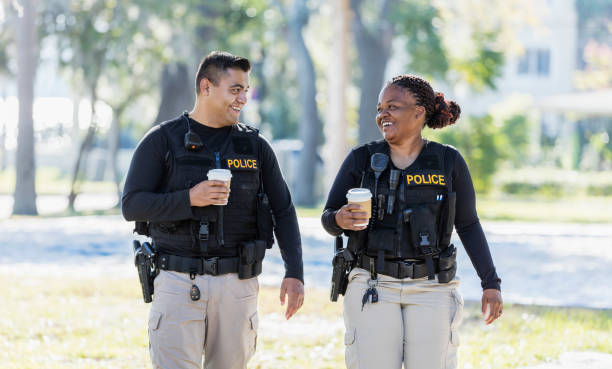Trust is a crucial component of effective community policing. When residents feel confident that their concerns are being heard and addressed, they are more likely to engage positively with law enforcement and contribute to the overall safety of their neighborhoods. Anonymous surveys play a significant role in building this trust by providing a platform for honest and open feedback.
The Importance of Trust in Community Policing
Community policing relies on strong, trusting relationships between residents and law enforcement. When trust is established, residents are more likely to report suspicious activity, participate in neighborhood watch programs, and cooperate with police investigations. Conversely, a lack of trust can lead to disengagement, reduced cooperation, and a decline in community safety.
How Anonymous Surveys Foster Honest Feedback
Anonymous surveys offer residents the assurance that their feedback will be confidential, encouraging them to share their true opinions and concerns without fear of reprisal. This anonymity is particularly important in sensitive areas, such as perceptions of police behavior, experiences with crime, and personal safety concerns.
By providing a safe space for residents to voice their thoughts, anonymous surveys help law enforcement gain a clearer understanding of community issues and areas for improvement. This transparency allows police agencies to address concerns more effectively and demonstrate their commitment to serving the community’s needs.
Enhancing Communication and Transparency
Anonymous surveys also enhance communication between law enforcement and the community. By soliciting feedback through surveys, police agencies show that they value residents’ opinions and are willing to listen and respond to their concerns. This openness fosters a sense of partnership and collaboration, reinforcing the idea that both parties are working together to improve neighborhood safety.
Addressing Concerns and Making Improvements
The insights gained from anonymous surveys enable law enforcement to identify specific areas where improvements are needed. Whether it’s addressing issues related to policing practices, crime prevention strategies, or community outreach efforts, the feedback collected through surveys helps police agencies make informed decisions and implement changes that address residents’ needs.
Building a Culture of Accountability
Anonymous surveys contribute to a culture of accountability within law enforcement agencies. By regularly seeking and acting on community feedback, police departments demonstrate their commitment to transparency and continuous improvement. This accountability not only strengthens trust but also helps build a positive reputation within the community.
Conclusion
Anonymous surveys play a crucial role in building trust through transparency in community policing. By providing residents with a confidential platform to share their feedback, law enforcement agencies can gain valuable insights, enhance communication, address concerns, and foster a culture of accountability. Ultimately, this transparency leads to stronger relationships between police and the community, contributing to a safer and more engaged neighborhood. Start using Officer Survey today and discover what your residents are saying.





